Latest Multiple Network News

5 months ago
Theta Network and AWS Join Forces to Launch Custom Amazon AI Chips Trainium & Inferentia on EdgeCloud
Theta Network and AWS Join Forces to Launch Custom Amazon AI Chips Trainium & Inferentia on EdgeCloud Powered by Amazon. Decentralized by Theta. The first blockchain network to harness custom AI silicon from the world’s largest cloud service provider. Now seamlessly integrated into EdgeCloud Hybrid. Theta and AWS have spent the past several years collaborating on multiple technical fronts and over the last six months, the two teams have worked in close collaboration to seamlessly integrate their platforms. Recognizing Theta EdgeCloud Hybrid as the de facto leader in decentralized cloud infrastructure, trusted by dozens of global academic institutions, professional sports franchises, and top-tier esports organizations, AWS has taken a major step forward. For the first time, AWS has approved a decentralized platform to integrate its cutting-edge AI silicon: AWS Trainium and Inferentia EC2 instances. This milestone makes Theta the first blockchain network to deploy Amazon’s next-generation chipsets, delivering unmatched performance for AI, video and media workloads. Combined with over 30,000 NVIDIA GPUs contributed by the Theta community, EdgeCloud Hybrid now offers a globally distributed compute layer with unprecedented performance-to-cost efficiency — marking a breakthrough moment in the evolution of cloud services. Secured by THETA blockchain and powered by TFUEL payments, global customers can now access the best of AWS compute and Theta’s decentralized GPU marketplace, all through a single integrated EdgeCloud user interface.
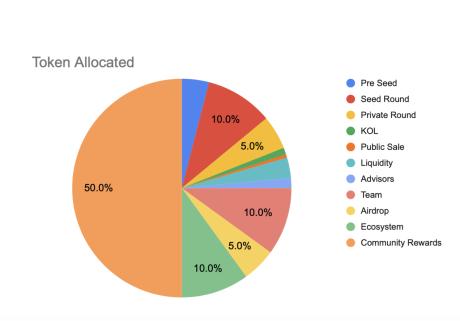
a year ago
Network3: Revolutionizing Edge AI Infrastructure
Network3: Revolutionizing Edge AI Infrastructure
On November 26, CZ(Binance founder) tweeted, 'I am not against memes, but meme coins are getting 'a little' weird now. Let's build real applications using blockchain.' The market's obsession with meme coins has overshadowed utility-driven blockchain projects like Network3, a decentralized Edge AI infrastructure project poised for significant growth.
Network3 integrates blockchain tokenomics, decentralized physical infrastructure networks (DePIN), federated learning, and Edge AI to challenge big tech's AI monopoly. With over 543,010 nodes across 185 countries, Network3's decentralized federated learning framework ensures privacy and data security while incentivizing node participation. The project's rapid growth, surpassing Helium in node count, signifies its potential to democratize computing power and data.
Market Potential and Tokenomics
The DePIN and Edge AI combination presents a trillion-dollar opportunity. DePIN incentivizes users to contribute physical resources, projecting a market size of $3.5 trillion by 2028. Currently undervalued at $1.33 billion, the DePIN sector is poised for exponential growth. Edge AI, with a projected market size of $269.82 billion by 2032, excels in data privacy and efficiency, attracting tech giants like NVIDIA and Google. Network3's tokenomics model, with a total token supply of 1 billion, ensures sustainable mining rewards through staking and mining.
Investing in Network3
Investing in Network3 offers a gateway to the future of AI infrastructure, combining DePIN's physical world integration and Edge AI's decentralized computing power. With a clear economic model and exponential market potential, Network3 stands out as a pioneer in revolutionizing the AI sector.
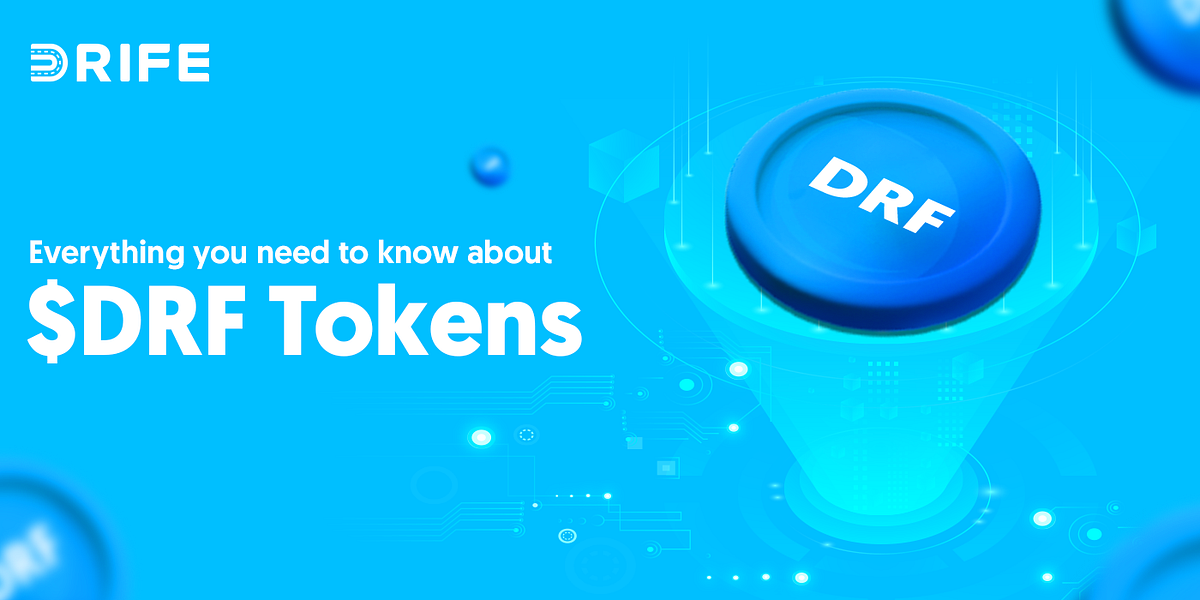
a year ago
DRIFE Set to Launch $DRF Token: A New Era in Decentralized Ride-Hailing
On November 14th, DRIFE will officially launch its highly anticipated $DRF token, marking a significant milestone in the decentralized ride-hailing sector. This launch is not just another addition to the crypto landscape; it is set to revolutionize the DePIN (Decentralized Physical Infrastructure Networks) space by providing a decentralized alternative to traditional ride-hailing services. The $DRF token aims to empower riders and drivers alike, ensuring fair pricing, transparent governance, and greater autonomy. This initiative is designed to benefit the entire ecosystem, allowing drivers to have more control over their earnings and riders to avoid surge pricing.
The $DRF token will have a total supply of 1 billion tokens, with 38 million available at launch, representing 3.8% of the total supply. The token allocation is strategically designed to foster sustainable growth, with 10% allocated to the team and advisors, 44% to the treasury, 9% for liquidity, and 15% for early contributors. To maintain stability, a vesting schedule is in place, ensuring that team tokens are vested over 12 months with a 6-month cliff, while ecosystem and rewards tokens will be gradually unlocked over three years. This structure aligns the interests of the project, community, and team, promoting long-term commitment and stability.
The $DRF token will serve multiple purposes within the DRIFE ecosystem, including facilitating decentralized payments, enabling governance participation, and powering a referral system. Users can earn tokens through various activities, such as staking, sharing content, and engaging in community-building efforts. As DRIFE prepares for its launch, the project is poised to become a leader in decentralized mobility, transforming the ride-hailing industry into a more efficient and community-driven model. With the launch just around the corner, the excitement is building, and the community is encouraged to participate and take advantage of the opportunities that $DRF presents.
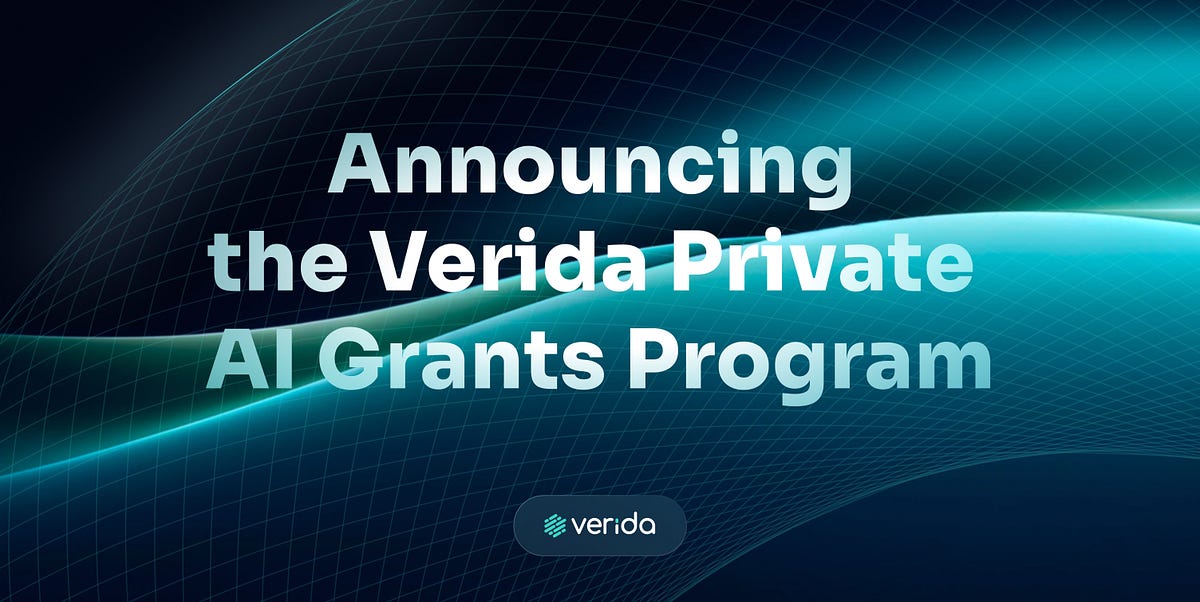
a year ago
Verida DAO Launches Private AI Grants Program
The Verida DAO has officially launched its inaugural Verida Private AI Grants Program, aimed at promoting innovation within the realms of Private AI and decentralized storage. This initiative is designed to support groundbreaking projects that leverage the Verida Private Data Bridge, which is set to expand its capabilities by integrating additional data connectors. By doing so, the program will empower developers using the Verida API to access a broader range of user data, ultimately leading to the creation of more sophisticated AI agents and applications.
The grants will be available from November 15th to February 15th, with a total grant pool valued at $30,000 in VDA tokens. The program features multiple tiers of funding, catering to various levels of project complexity. Tier 1 offers $500 for extending existing connectors, while Tier 2 provides $1,000 for basic connectors. For more advanced projects, Tier 3 awards $2,000 for high complexity connectors, and Tier 4 grants $3,500 for advanced connectors. This tiered approach encourages a wide range of innovative solutions within the decentralized storage ecosystem.
Interested participants can register their interest by filling out a designated form, which will be reviewed by the DAO team. Successful submissions will lead to further discussions about the proposed projects. The Verida DAO is enthusiastic about the potential contributions to the future of Private AI and looks forward to seeing innovative solutions that enhance the decentralized storage landscape. This initiative marks a significant step towards realizing Verida's long-term vision of unlocking data for diverse Private AI use cases.
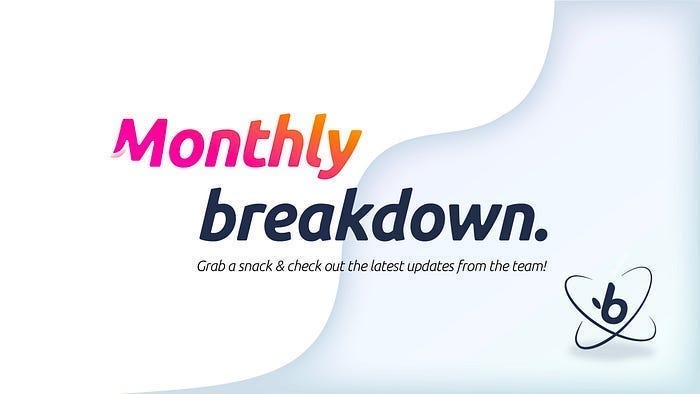
a year ago
Bistroo's October 2024 Update: Sales Growth and New Features
In October 2024, Bistroo has made remarkable progress in enhancing its sales pipeline and marketing efforts, as detailed in the latest update for token holders and the broader community. The company launched several projects aimed at improving the sales funnel, resulting in a staggering 234% year-on-year increase in first-time users, with 7,224 new orders placed. Additionally, 3,186 new user accounts were created, marking a 199% increase compared to the same month last year. The number of new merchants going live also saw a significant rise, with 39 new merchants compared to 25 in October 2023, alongside 75 new appointments scheduled, reflecting the company's commitment to expanding its reach as the holiday season approaches.
On the marketing front, Bistroo has focused on growth through partnerships and community engagement, celebrating its 5th anniversary in September. The company has made significant strides in search engine optimization (SEO) efforts, particularly with its Pages product, which allows merchants to create whitelabel websites. This initiative aims to drive more search traffic to these pages, enhancing visibility and engagement. Furthermore, Bistroo has improved its Google My Business support, providing merchants with an additional channel to connect with their audience directly. Two strategic crypto partnerships are also in the pipeline, set to be announced soon.
In terms of development, Bistroo has rolled out multiple updates to enhance user experience. A notable feature introduced is the 'as soon as possible' expiration setting for orders, which automatically closes unconfirmed orders after two hours. This update aims to streamline operations for merchants and improve order management. Other enhancements include adjustments to notification settings, quality of life improvements for security, and bug fixes for the revenue system. With these developments, Bistroo continues to empower restaurants through its SaaS infrastructure, leveraging the BIST Token to facilitate lower fees and instant payouts for online orders.

a year ago
Nicholas Zaldastani Discusses Blockchain's Impact on Data Ownership and Security
In a recent episode of Hashing It Out, Nicholas Zaldastani, the chairman and co-founder of CESS, discussed the transformative power of blockchain technology in the realm of data ownership and security. Reflecting on his tenure at Oracle in the late 1980s, Zaldastani noted the exponential growth in the value of data, which has become a cornerstone of the global economy. As digital information increasingly dictates various aspects of life, the urgency surrounding data privacy and security has intensified, prompting discussions on decentralized storage solutions that empower users to retain control over their information.
Central to Zaldastani's insights is the concept of data sovereignty, which advocates for individuals' rights to manage their own data. He criticized traditional centralized storage systems for their vulnerabilities, often exposing data to unauthorized access and misuse. In contrast, decentralized networks like CESS offer innovative solutions by distributing data across multiple nodes, thereby enhancing security. Zaldastani explained that by breaking data into encrypted segments and replicating them across various locations, the risk of data breaches is significantly reduced, as accessing a single node yields only a fraction of the information.
The implications of decentralized data storage extend beyond individual privacy, influencing sectors such as non-fungible tokens (NFTs) and artificial intelligence (AI). As blockchain technology continues to evolve, it holds the potential to redefine how data is managed and secured, ensuring that users maintain ownership and control. The podcast episode serves as a vital resource for understanding these emerging trends and the future of data in a digital-first world.

a year ago
Mawari Network Announces Node License Sale to Enhance 3D Streaming Technology
Mawari Network, a pioneering entity in spatial computing and decentralized physical infrastructure networks (DePIN), has announced a limited node license sale aimed at enhancing its 3D streaming technology. This initiative is timely, as the market for extended reality devices is expected to exceed 100 million units in the next five years. By facilitating a global decentralized infrastructure, Mawari aims to meet the growing demand for immersive experiences, positioning itself as a key player in the burgeoning multibillion-dollar spatial computing sector. The node sale is designed to scale the network, optimize performance, and ensure resiliency in delivering immersive content.
The Mawari Network is built to support the demanding requirements of immersive experiences, featuring a Spatial Streaming SDK compatible with popular game engines like Unity and Unreal. This SDK empowers developers to create seamless, engaging content. The network operates on a globally distributed system of GPU nodes, ensuring low latency and high performance. Luis Oscar Ramirez, the CEO and Founder of Mawari, emphasized that the node sale allows operators to contribute to the global 3D content ecosystem while being rewarded for their participation. This innovative approach addresses the limitations of current cloud services in scaling spatial streaming technology.
Scheduled for Q4 2024, the node sale will focus on establishing Guardian Nodes that are essential for monitoring performance indicators such as latency and bandwidth. These nodes will ensure the network can handle multiple immersive experiences simultaneously while maintaining high-quality standards. Mawari's collaborations with industry giants like Deutsche Telekom and Netflix, along with backing from prominent investors, solidify its leadership in decentralized spatial computing. As Mawari continues to redefine the landscape of immersive content delivery, the upcoming node sale represents a significant step toward realizing its vision for a community-driven spatial computing future.
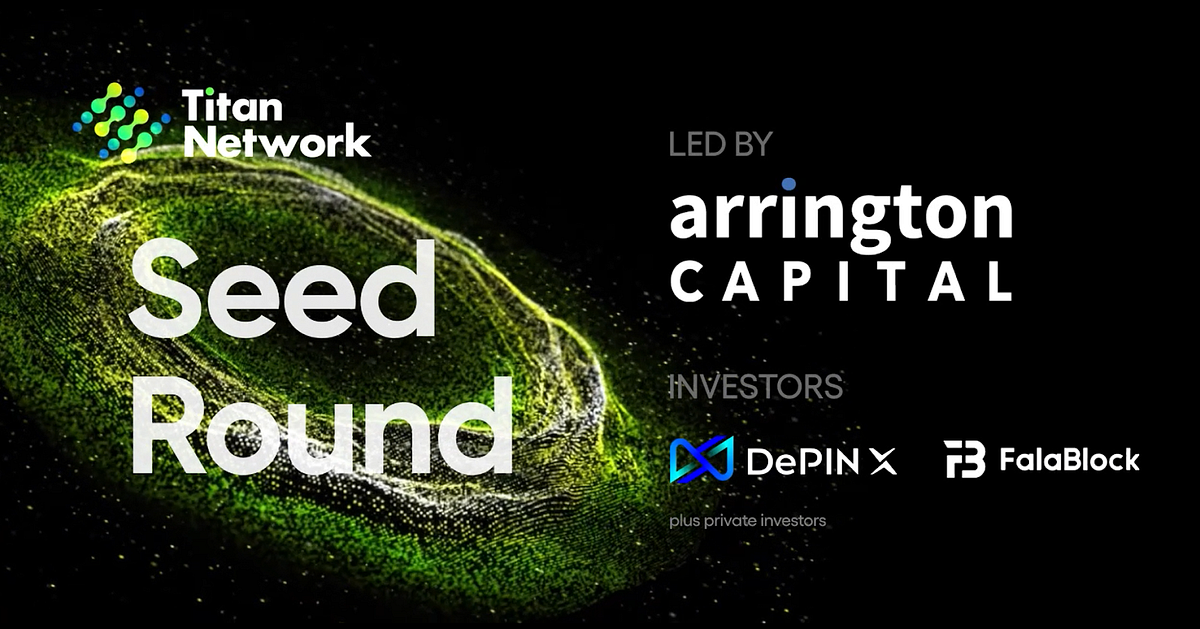
a year ago
Titan Network Completes Seed Round Fundraising to Launch Decentralized Cloud Services
Titan Network, a pioneering digital resource network, has successfully completed its seed round fundraising, led by Arrington Capital, with participation from DePINX and other notable investors. The primary goal of Titan Network is to create a comprehensive digital resource network that efficiently matches idle community resources with global demand, particularly in the DePIN (Decentralized Physical Infrastructure Networks) market. By developing a universal DePIN cloud service platform, Titan Network allows community members to contribute their idle hardware resources—such as computing power, storage, and bandwidth—while ensuring they are rewarded through built-in economic incentive mechanisms. This innovative approach aims to provide advanced, reliable, and high-quality cloud solutions for end users, positioning Titan Network as a decentralized alternative to traditional cloud services like AWS.
The seed round, which will accelerate preparations for Titan Network's mainnet launch, has garnered significant attention due to the credibility of its lead investor, Arrington Capital. Founded in 2017, Arrington Capital has invested in over 200 startups within the crypto ecosystem, managing assets exceeding $1 billion. Another participant, DePINX, based in Singapore, manages $100 million in assets and boasts a team with experience from leading firms in the blockchain space. The funds raised will support key initiatives such as mainnet development, code auditing, community building, and marketing efforts, ensuring a robust launch for Titan Network.
Since March 2024, Titan Network has successfully executed three rounds of testnets, deploying over 1 million nodes across more than 100 countries, validating its technical capabilities. Looking ahead, Titan Network plans to enhance the security of its multi-level containers and optimize products like Titan Storage and Titan Container for better user experience. To promote transparency, multiple smart contracts will be released, allowing for public visibility of resource interactions on the blockchain. Titan Network is also expanding its global team and invites interested candidates to apply, as it continues to advance the future of decentralized networks.

a year ago
DePin Grass Token Surges Post-Airdrop Amid Trading Debates
The DePin Grass project has officially commenced trading on multiple exchanges following a successful airdrop. Despite facing some selling pressure from the airdrop, the price of the GRASS token briefly exceeded $1, driven by a significant increase in trading volume. Initially, GRASS was trading at around $0.73 in the pre-market, but after its listing, it surged from a low of $0.65 to a high of $1.10. This remarkable price movement suggests that the market has assigned a fully diluted valuation (FDV) of over $1 billion to GRASS, highlighting strong investor interest in this newly launched token.
However, the price later retraced to $0.87, still higher than its pre-market level, indicating sustained optimism among investors. Data from CoinGecko shows that GRASS has surpassed the daily trading volumes of established tokens like Bittensor (TAO) and Filecoin (FIL), with nearly $225 million traded, making it the leading token in the DePin trading volume category.
A discussion has emerged regarding GRASS's initial circulating supply, which is stated to be 25% of the total 1 billion tokens. An investor's analysis suggests that the actual circulating supply may be as low as 5-6%. This discrepancy raises concerns about the potential risks associated with investing in GRASS, especially given its high FDV combined with a limited circulating supply. The linear unlock process for GRASS will continue until 2028, with daily unlocks potentially exerting long-term selling pressure on the token's price. As a DePin project developed by Wynd Network, GRASS rewards active users for sharing their internet resources through a browser extension.
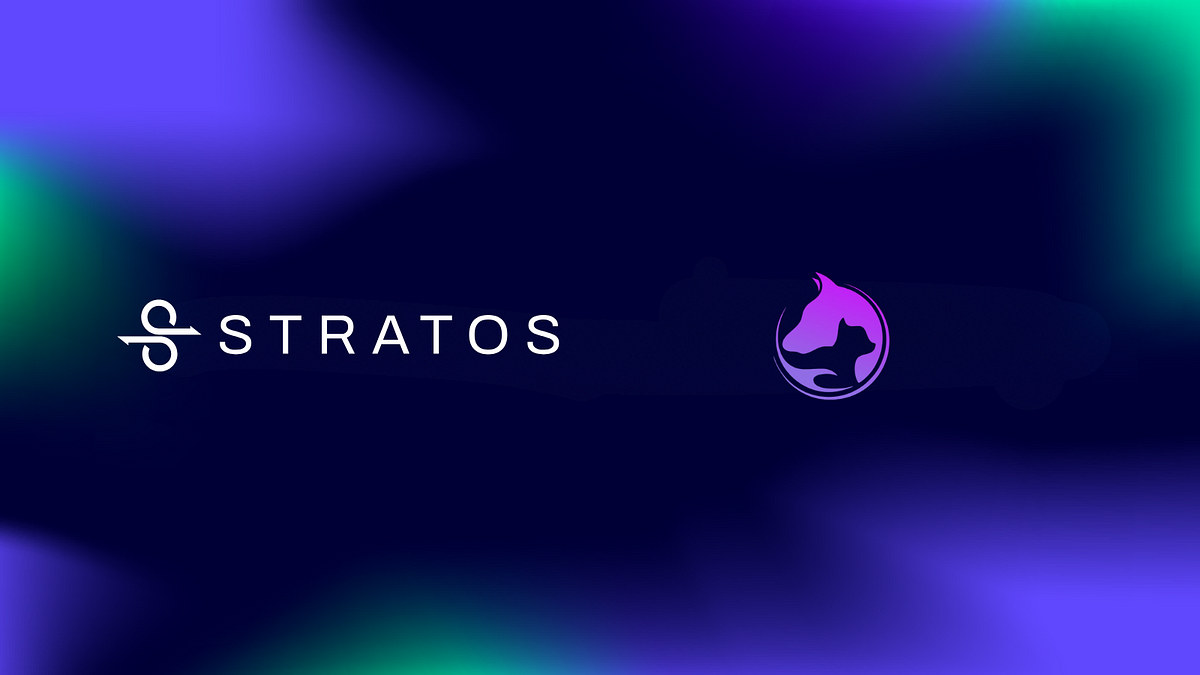
a year ago
Stratos Partners with FurGPT to Enhance Virtual Pet Art through AI and Web 3.0
Stratos has announced an exciting partnership with FurGPT, a pioneering platform that integrates AI technology with Web 3.0 to create personalized virtual pet art. This collaboration leverages Stratos' decentralized storage infrastructure, which provides secure and scalable storage solutions for the virtual pet creations and interactions of FurGPT users. Operating across multiple networks, including BNB Chain, Ethereum, and Lithosphere, FurGPT combines the creativity of AI with decentralized finance (DeFi) to enhance digital experiences in a unique way.
With this partnership, FurGPT users can expect improved performance and data security while bringing their customized digital pets to life. Stratos' decentralized storage network is designed to ensure high performance, reliability, and resilience against the limitations often found in centralized systems. This solid foundation allows FurGPT to expand its functionalities in both AI and Web 3.0, ultimately enriching the user experience and fostering creativity in the digital art space.
The collaboration between FurGPT and Stratos signifies a significant step towards empowering users to create, connect, and explore the future of interactive and decentralized digital art. By merging innovative technologies in a secure Web3 environment, this partnership is set to redefine how users engage with digital pets and art, making it a noteworthy development in the blockchain and AI landscape.
Signup for latest DePIN news and updates